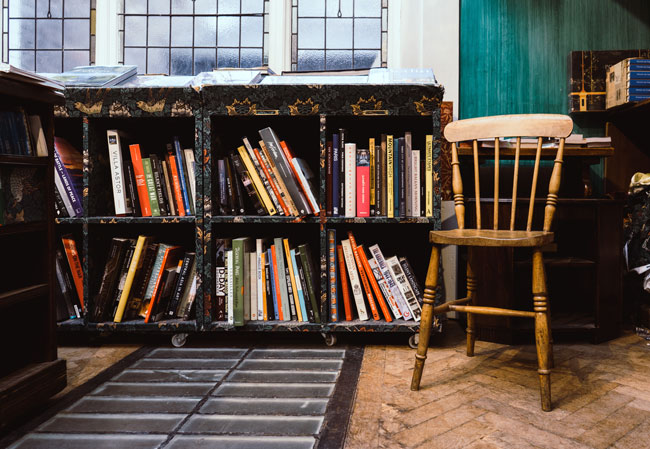Take a cue from these classic heroines, and live with confidence, grace, and courage.
If you’re like me, you devoured stories like Anne of Green Gables and The Secret Garden as a young girl. You quickly progressed to classics like Jane Eyre and Pride and Prejudice way before they appeared on your literature courses’ syllabuses. Despite the fact that you now know these words inside and out, you continue to re-read them, over and over again. Now most of the pages are dog-eared and the covers are falling off the spine. Perhaps it’s because you never tire of the narrators’ sharp wit, the pleasure of stepping outside of your own busy schedules and visiting a bygone era. Maybe it’s the fact that the plotlines happen to contain just the right combination of sense and sensibility to keep both your mind and your heart content. While these qualities definitely do contribute to the allure, I suspect that there is more to it than that.
I believe that the reason I keep turning to these novels is because I find such powerful female role models in them. Voicing this has definitely earned me my fair share of eye rolls from friends who cannot fathom how I can see strength in these “blushing damsels”. While I definitely do not wish to recreate the stifling social constrictions placed on women from centuries past, I continue to be astonished by the confidence, grace, and courage that I find in the words and actions of these classic heroines.
01. “I am no bird; and no net ensnares me; I am a free human being with an independent will.” – Jane Eyre
At first glance, Charlotte Brontë’s young, poor, orphaned protagonist appears meek and subservient. She lives a childhood of loneliness and finds employment as a governess, where she eventually falls in love with Thornfield Hall’s brooding and unpleasant master. While the story does have a romantic happily ever after, this is not until after she chooses to defy expectations and go off on her own instead of compromising her sense of self-respect. Therefore, the true lesson that Jane Eyre teaches is that you should never let go of your own principles and individuality, and that it is imperative that you respect yourself, your desires, and your boundaries.
02. “It’s been my experience that you can nearly always enjoy things if you make up your mind firmly that you will.” – Anne Shirley
Also a poor orphan raised in difficult circumstances, Lucy Maud Montgomery’s protagonist of Anne of Green Gables has the most vivacious imagination. She also has the best outlook on life of anyone I’ve ever met, inside or out of the pages of a novel. Anne is determined to see the good in the world. Whenever life does not go the way she hopes, she chooses to make the best of it. While this is an important lesson for children to learn, who must grapple with the fact that they have to do things they do not want to at times—chores, anyone?—it is just as important for us as adults to remember that a good attitude and a determination to enjoy life can go a long way.
03. “You are a man, dealing with a set of men over whom you have, whether you reject the use of it or not, immense power, just because your lives and your welfare are so constantly and intimately interwoven. God has made us so that we must be mutually dependent.” – Margaret Hale
When Margaret Hale, the proud and compassionate protagonist of Elizabeth Gaskell’s North and South, leaves her idyllic life on her father’s country parsonage in the south of England and moves to the bustling industrial north, she is shocked by the working conditions and impersonal relationships between factory workers and their bosses. In this quotation, she sharply criticizes John Thornton, a cotton-mill owner, for not taking responsibility for the welfare of his employees. Taken out of its Industrial Revolution context, her words have a timeless lesson: we are all obligated to care for one another, we all have something to give and something to receive, and positions of authority or privilege must be used as a platform for serving and raising up others.
04. “Don’t you feel that it is pleasanter to help one another, to have daily duties which make leisure sweet when it comes, and to bear and forbear, that home may be comfortable and lovely to us all?” – Marmee (Mrs. March)
We all know and love the four March sisters—Jo, Meg, Beth, Amy. For me, however, the true heroine of Louisa May Alcott’s Little Women is their mother, who they affectionately call Marmee. She is quiet but her words speak loudly. She is endlessly organized and discourages idleness. Even more, she is unconventional for her time in her belief that love is more important in marriage than money. This quotation reminds us that leisure is more rewarding when we work hard, and that we all have something to contribute to making our environments more comfortable for all.
05. “We have all a better guide in ourselves, if we would attend to it, than any other person can be.” – Fanny Price
Fanny Price is one of the most underrated of all Jane Austen’s leading ladies. I’ll admit that more outspoken protagonists like Elizabeth Bennet and whimsical characters like Catherine Morland caught my attention much faster. But I recently decided to give Mansfield Park another chance. When poor, shy Fanny is sent to live with her wealthy cousins, she learns to decipher between superficiality and integrity. Her strength of character and morals keep her grounded throughout the trials she finds herself facing as she grows up. We could all do well to remember her words: trust your instincts, listen to your intuition, and look inward before seeking someone else’s advice.
